- Introduction
- Admission
- Integrated Programmes
- Student Life
- Contact Us
- Join us






No. IB programmes are totally different from the Chinese curriculum with regard to subject content and assessment standards.

(a)We have two full-time College Counselors working in our College Counseling Office and they give individual guidance to our students with regard to university applications.
(b) We have written the handbook “The Path to University” and “ SAT, TOEFL & IELTS Test Guide” for students and parents.
(c)University counseling workshops are scheduled to help students and parents to understand the process of university applications and answer their questions.
(d)We regularly invite overseas universities to come to our school and give presentations to and speak with our students.


Our teachers mainly come from the USA, the UK, Canada, India, and China.
All of our teachers are certified with their education background and teaching credentials for the subjects they teach. We have 53 full-time certified teachers. Among 22 high school teachers, we have 10 IB examiners, which accounts for 45.5%.

(a) TOEFL is administered by American Educational Testing Service (ETS) to test English language proficiency. It is the abbreviation of Test of English as Foreign Language. It is translated as “Tuo Fu” in Chinese. The maximum score of TOEFL test is 120 and A TOEFL score is valid for two years. TOEFL scores are accepted by more than 11,000 universities and other institutions in over 150 countries.
(b) IELTS, or International English Language Testing System, is jointly managed by the British Council, University of Cambridge ESOL Examinations, and IDP Australia. It is an international standardized test of English language proficiency and it helps applying for universities in and/or immigration to the UK, Australia, Canada, and New Zealand. It is globally recognized by more than 10,000 employers, universities, schools and immigration bodies including 3,400 institutions in the USA.
(c)The SAT is a standardized test for college admissions and it is developed by the College Board. It is an important indicator for students to apply for American universities as well as scholarships.


Regarding applying for IB Programs, it will follow the standard admission procedure. You need to fill out an application form and then the office will notify you for the assessment and interview. Basically, if you apply for the lower school (G1-8), you will take comprehensive assessment. If applying for high school, in addition to math and English, Chinese students need to take the test for Chinese proficiency. Only those who pass the assessment will be admitted to the IB Programs.
Admission rate is generally2:1 for junior high school, and 2.5:1 for high school ( for students who take the domestic high school entrance exam, they should meet the score requirement for “Zhongkao”)

